How Many Watts Does A Ceiling Fan Use?
A ceiling fan uses much less energy as compared to an air conditioner. You can use it alone or in combination with the air conditioner and run the AC at a higher temperature than you usually do. How many watts a ceiling fan uses depends on the size of the fan, the brand, the quality of its wiring, etc. Generally, fans use 55 to 100 watts depending on the size, as a typical 48-inch ceiling fan will use 75 watts.

Though ceiling fans take considerably less energy than the air conditioner, they have to be used for longer. You can save on energy bills by running your fans on solar generators. The Jackery solar generators are available in small to medium capacity and can be used indoors and outdoors without any safety hazards.
|
Products |
Image |
Capacity |
Rated / Peak Power |
Battery |
Size |
|
 |
1.25-5 kWh |
2000W (4000W Peak) |
LiFePO4 |
Length:14in (35.6cm) Width:10.24in (26cm) Height:11.14in (28.3cm) Weight:32lbs (14.5kg) |
|
|
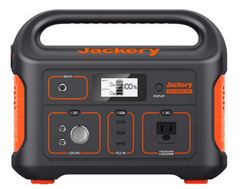 |
518Wh |
500W (1000W Peak) |
Lithium-ion |
Width:7,6in(19,2cm) Height:11,8in(30cm) Depth:9,5in(24,2cm) Weight:13,3lbs(6kg) |
|
|
 |
288Wh |
300W (600W Peak) |
LiFePO4 |
Length:9.1in(23cm) Width:6.1in(15.5cm) Height:6.6in(16.7cm) Weight:8.27lbs(3.75kg) |
Key Takeaways About Ceiling Fan Wattage
- How many watts does a ceiling fan use? A typical ceiling fan uses about 10 to 120 watts per hour. The exact number depends on the size, speed, and model.
- If you run a ceiling fan for 12 hours a day for a month, the average cost sits between $1.20 to $43.20.
- Ceiling fans help you to reduce your electricity cost as it uses much less energy than an air-conditioning unit.
- A significant reduction of 30% on electricity bills is estimated if you use a ceiling fan.
How Many Watts Does A Ceiling Fan Use?
How many watts a ceiling fan uses depends on several factors, including;
- The brand of ceiling fan
- Ceiling fan size
- How many hours is the fan used?
- Air delivery rate
- The higher the speed, the more power consumption
- The wiring quality of the fan/
Following is a summary of how many watts a ceiling fan uses according to size.
|
Fan Size |
Wattage |
|
24 inch |
41 watts |
|
30 inch |
48 watts |
|
36 inch |
55 watts |
|
42 inch |
65 watts |
|
48 inch |
75 watts |
|
52 inch |
87 watts |
|
56 inch |
100 watts |
|
60 inch |
120 watts |
|
72 inch |
180 watts |
Ceiling Fan Power Consumption
As we already discussed, how many watts a ceiling fan uses depends on the size, brand, air delivery rate and speed. However, there are general guidelines and formulas that we can use to determine the daily, monthly and yearly consumption. These figures also give you the cost of electricity, and then you can determine how to save on this cost.
How much PowerPower does a Ceiling Fan Consume Per Day?
Let us take an average 75-watt fan running for twelve hours in the summer. Here is the formula for power consumption;
Power = rated power of fan x duration of use in hours
Power consumption daily = 75 watts X 12 hours
Power consumption daily = 900 watt-hours
How much PowerPower does a Ceiling Fan Consume Per Month?
If the same fan runs daily for 12 hours for a month of 30 days, then its power consumption is calculated as follows;
The power consumption by one fan monthly = 900 X 30
The power consumption by one fan monthly = 2700 watt-hours = 27 kWh.
In the following table, we have summarized the power consumption of different sizes of ceiling fans hourly and monthly.
|
Ceiling Fan Size |
hourly |
monthly |
|
24 inch |
0.04 kWh |
28.8 kWh |
|
30 inch |
0.05 kWh |
36 kWh |
|
36 inch |
0.06 kWh |
43.2 kWh |
|
42 inch |
0.07 kWh |
50.4 kWh |
|
48 inch |
0.07 kWh |
50.4 kWh |
|
52 inch |
0.09 kWh |
64.8 kWh |
|
56 inch |
0.10 kWh |
72 kWh |
|
60 inch |
0.12 kWh |
86.4 kWh |
|
72 inch |
0.18 kWh |
129.6 kWh |
Ceiling Fan vs. Table Fan Power Consumption
How many watts do a ceiling fan and a table fan use differ slightly? Consequently, the cost of usage also has some differences. Here is the comparison of watts and cost. It is important to note that we assume that the fans will run for 8 hours, and the cost of electricity is 16 ¢/kWh.
Table Fan
|
Type |
Watts |
Cost/hr* |
Cost/month* |
|
Small (4" – 6.9") |
28.5W |
$0.005 |
$1.09 |
|
Medium (7" – 9.9") |
52.7W |
$0.008 |
$2.02 |
|
Large (10"+) |
44.3W |
$0.007 |
$1.70 |
Ceiling Fan
|
Type |
Watts |
Cost/hr* |
Cost/month* |
|
Small (36 inch) |
55W |
$0.009 |
$2.11 |
|
Medium (48 inch) |
75W |
$0.012 |
$2.88 |
|
Large (52 inch) |
90W |
$0.014 |
$3.46 |
How Much Does It Cost to Run A Ceiling Fan?
Since now we know how many watts a ceiling fan uses, we can easily calculate the average cost of using a ceiling fan per day and week. The following table summarizes the cost of running a ceiling fan continuously for 24 hours. The electric rate we are using is the state average in the US.
|
Ceiling Fan Size (in diameter) |
Per Hour |
Per Day (24 Hours) |
Per Week (24/7) |
|
24 inch |
$0.006 |
$0.13 |
$0.95 |
|
30 inch |
$0.007 |
$0.16 |
$1.11 |
|
36 inch |
$0.008 |
$0.18 |
$1.27 |
|
42 inch |
$0.009 |
$0.26 |
$1.51 |
|
48 inch |
$0.01 |
$0.25 |
$1.74 |
|
52 inch |
$0.012 |
$0.28 |
$2.02 |
|
56 inch |
$0.014 |
$0.33 |
$2.32 |
|
60 inch |
$0.017 |
$0.40 |
$2.79 |
|
72 inch |
$0.025 |
$0.60 |
$4.18 |
The Best Power Station for A Ceiling Fan
There are many situations where you will prefer to run your ceiling fan on solar PowerPower. It helps you to save energy costs, and also, when you go outdoors for camping, kayaking, RVing and natural lifestyle, then solar PowerPower is your way to go. Additionally, we are experiencing power outages much more frequently than ever before. Hence, an alternative power resource is critical.
The Jackery solar power stations are the best choice for ceiling fans as they are available in various capacities and features. The main features of these generators are compact size, an Advanced battery management system, protection from overheating and overcharging, multiple output ports and quick charging. Let us review the best Jackery solar generators for a ceiling fan.
Jackery Explorer 1000 Plus Portable Power Station
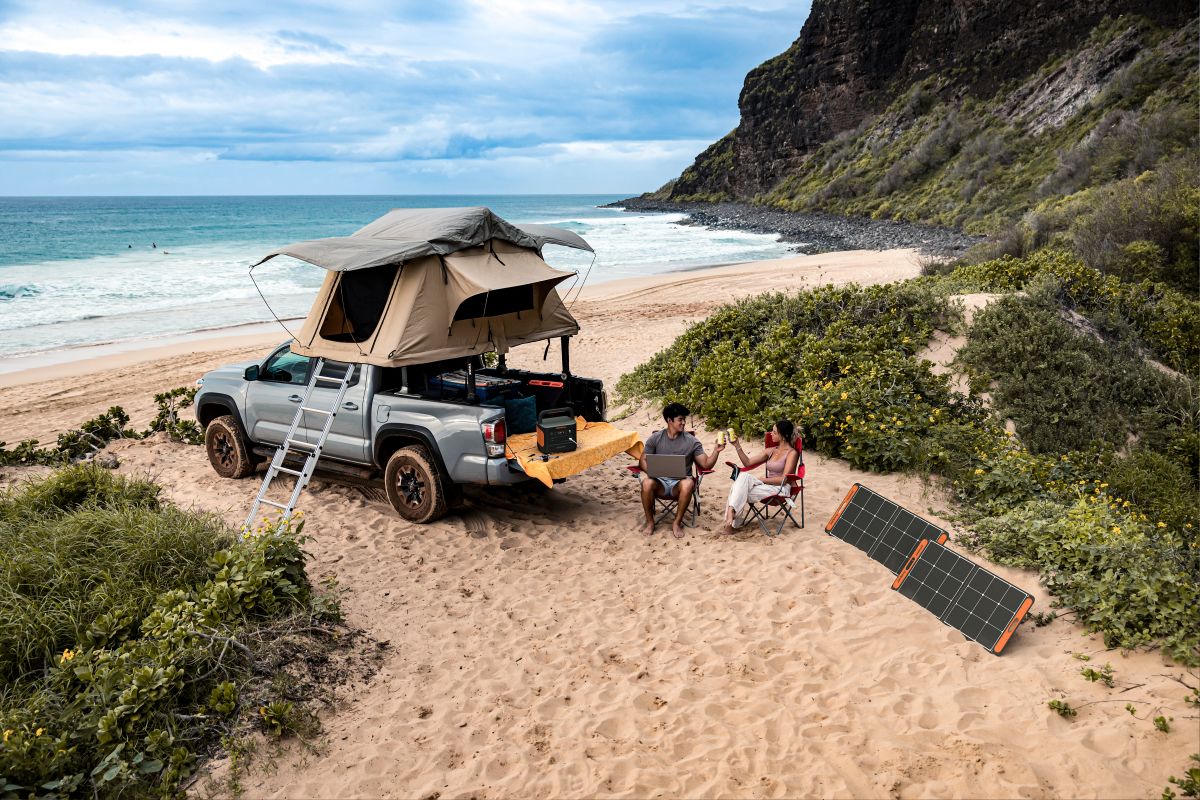
The Jackery Explorer 1000 Plus is a compact yet powerful solar power station. It comes with a 1264Wh capacity and a 2000W output and can support most of the devices you will be using. It is also characterized by very fast charging with various methods, including solar charging, wall outlet charging and carport charging. With solar panels, it takes only 4 hours to charge from zero to full. You can also use its advanced APP feature via WiFi or Bluetooth for intelligent control.
Customer Review:
"Quick, smooth and easy. These three define my experience with Jackery 1000. I use it with SolarSaga 200 solar panels, and the result is awesome."
Jackery Explorer 500 Portable Power Station
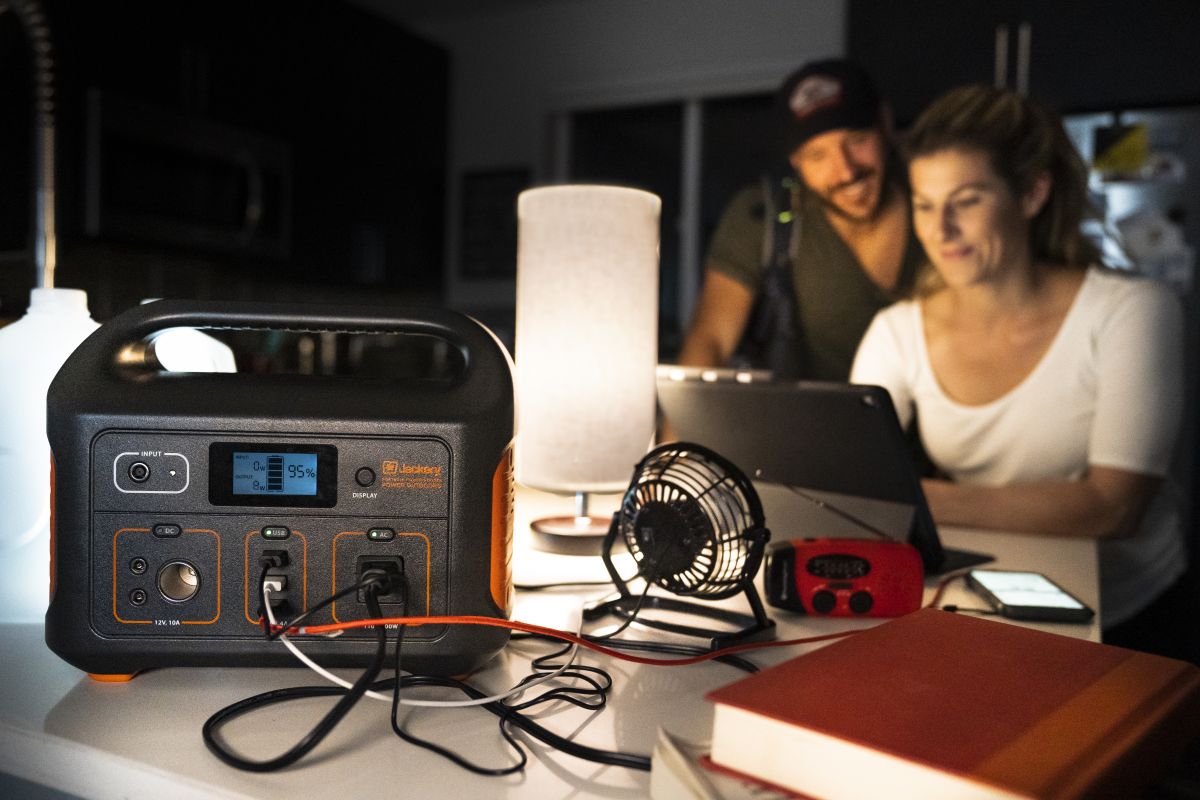
The Jackery Explorer 500 is a portable power station with excellent durability in hot and cold weather. This power station is also very safe as it comes with a built-in MPPT charge controller and pure sine wave inverter. These features protect against short circuits, overcharge, overvoltages and more.
Customer Review:
"I use Jackery Explorer 500 as a backup for my home. It is a medium capacity generator, and I am very impressed with multiple ports that allow me to run various devices simultaneously."
Jackery Explorer 300 Plus Portable Power Station
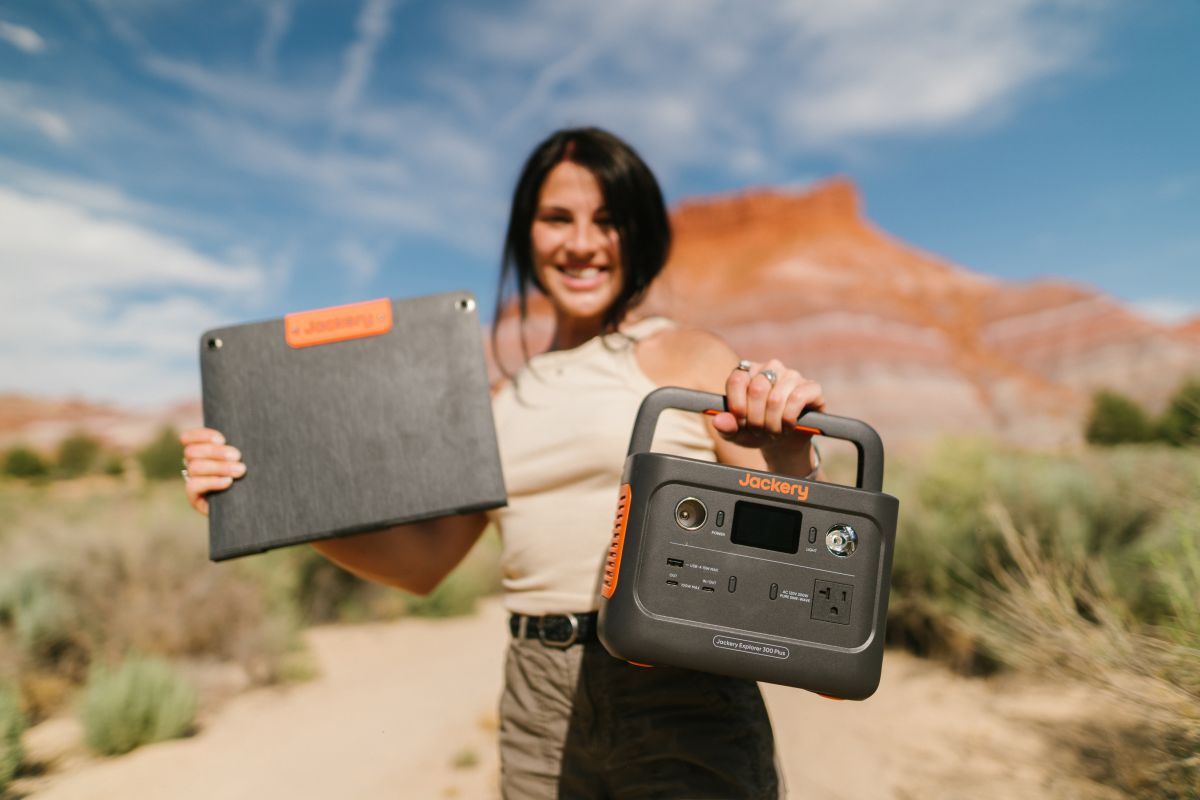
The Jackery 300 Plus has a capacity of 288Wh and an output of 300W PowerPower. It is perfect for both indoors and outdoors because of its compact size. It has multiple output ports and multiple charging options.
Customer Review:
"Since I am a frequent traveller. I always keep my Explorer 300 plus in my car. It is a perfect companion for my camping and travelling. I can use it to charge both my phone and laptop, along with my camping lights."
|
Jackery Products |
Capacity |
Output Ports |
Ceiling Fan Watts |
Working Hours |
|
1264.64Wh |
AC Output(x3): 120V~60Hz, 2000W (4000W Peak) USB-A Output(x2): 18W Max, 5-5V⎓3A USB-C Output(x2): 100W Max, (5V, 9V, 12V, 15V, 20V up to 5A)
|
24 inch-41 watts |
26 Hours |
|
|
30 inch-48 watts |
22 Hours |
|||
|
36 inch-55 watts |
19.5 Hours |
|||
|
42 inch -65 watts |
16.5 Hours |
|||
|
48 inch-75 watts |
14.3 Hours |
|||
|
52 inch-87 watts |
12 Hours |
|||
|
56 inch -100 watts |
10.7 Hours |
|||
|
60 inch -120 watts |
9 Hours |
|||
|
72-inch - 180 watts |
6 Hours |
|||
|
518Wh |
AC Output(x1): 230V, 50Hz, 500W (1.000W Peak) DC Output(x2): 12V⎓7A USB-A Output(x3): 5V⎓2,4A
|
24 inch-41 watts |
10.7 Hours |
|
|
30 inch-48 watts |
9.2 Hours |
|||
|
36 inch-55 watts |
8.0 Hours |
|||
|
42 inch -65 watts |
6.8 Hours |
|||
|
48 inch-75 watts |
5.9 Hours |
|||
|
52 inch-87 watts |
5.1 Hours |
|||
|
56 inch -100 watts |
4.4 Hours |
|||
|
60 inch -120 watts |
3.7 Hours |
|||
|
72-inch - 180 watts |
2.4 Hours |
|||
|
288Wh |
AC Output(x1): 120V, 60Hz, 300W (600W Peak) USB-A Output(x1): 15W Max 5V⎓3A USB-C Output(x2): 100W Max, 5V⎓3A (5V, 9V, 12V, 15V, 20V up to 5A)
|
24 inch-41 watts |
6 Hours |
|
|
30 inch-48 watts |
5 Hours |
|||
|
36 inch-55 watts |
4.45 Hours |
|||
|
42 inch -65 watts |
3.7 Hours |
|||
|
48 inch-75 watts |
3.2 Hours |
|||
|
52 inch-87 watts |
2.8 Hours |
|||
|
56 inch -100 watts |
2.4 Hours |
|||
|
60 inch -120 watts |
2 Hours |
|||
|
72-inch - 180 watts |
1.36 Hours |
Ceiling Fan Wattage FAQs
1) What size of solar generator do I need to run a ceiling fan?
The size of a solar generator depends on the wattage of your ceiling fan. So if you are using a ceiling fan using 75 watts and you run it for 8 hours, then its total consumption is;
Total power consumption = 75 x 8 = 600 Wh
So it would be best to have a solar generator with at least 600 watt-hours capacity. Alternatively, if you have a solar generator and want to know how long it will run your ceiling fan, use the following method.
Working time = Capacity Wh * 0.85 / operating wattage of your fan
This 0.85 represents 85% efficiency.
For example, if the power consumption of your fan is 65 watts and the solar generator's capacity is 1002 Wh.
Jackery Solar Generator 1000Pro Working time will be 1002Wh * 0.85 / 65 W = 13 hrs.
2) Are there any tips for saving my electricity bills?
Many ways can save your watts, and eventually, your electricity bills are reduced.
- Check the daily consumption of all your equipment, check for the useless stuff, and turn it off.
- Use your air conditioner on a higher thermostat and supplement it with a fan.
- Adjust your fridge and freezer temperature to a higher number.
- Shorter showers can save electricity spent on heating.
- Wash clothes in warm or cold water instead of very hot.
- Adjust to warm on your water heater.
- Get energy-efficient appliances.
- Switch to LED lighting.
- Dimmer switches can also help you reduce power consumption.
3) Does leaving a ceiling fan turned on waste electricity?
Yes, it does. Because a fan does not cool the air in the room, even if you leave it on while you are not in the room, it won't help you when you come inside. The temperature of the room remains the same.
4) How many watts does a 52-inch ceiling fan use?
A 52-inch ceiling fan takes about 85-90W of energy
Final Thoughts
As electricity prices are soaring and the economy is becoming difficult, we must look for alternatives to grid power and ways to reduce power consumption. Ceiling fans can help you reduce power consumption as they use much less power than air conditioners. You can use them in place of the air conditioner when the weather is moderate and in combination with the air conditioner. However, it is also essential to know how many watts a ceiling fan uses to estimate the total cost. Another way to reduce the power expense is to switch to solar generators, which are noise-free and safe. The Jackery solar power stations are an excellent choice for indoors and outdoors because of their compact size and high standard of safety and reliability.
Disclaimer:
The runtime mentioned for appliances powered by Jackery is for reference only. Actual runtime may vary under different conditions. Please refer to real-world performance for accurate results.






















































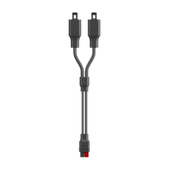














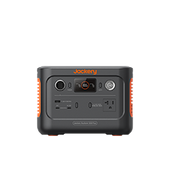

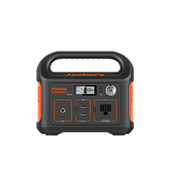

















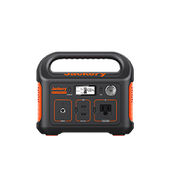


















Leave a comment